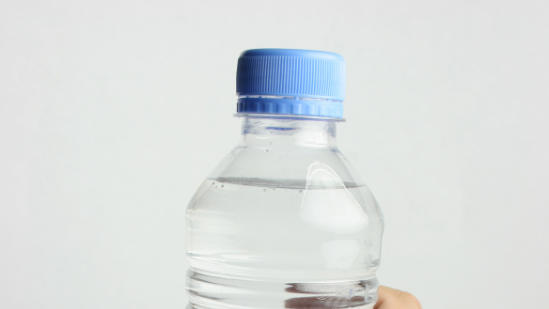Plastic bottles and food containers-What does the evidence show about plastic and cancer?
Posted on December 13th, 2017
cancer research uk.org
What does the evidence show about plastic and cancer?
People have claimed chemicals inside plastics leach into food or drink causing cancer. In particular there have been concerns about Bisphenol A (BPA) and dioxins in plastic bottles or plastic containers.
But there is no convincing evidence to show using plastic bottles or plastic containers increases the risk of cancer.
What research has been done?
Most of the concerns about plastic bottles and containers focus on whether chemicals inside the plastic can move out into food or drink. And if the levels of these chemicals could do us any harm.
Can chemicals in plastic move into food and drink?

Some studies have shown that small amounts of chemicals from plastic containers can end up in the food or drinks that are kept inside them. But the levels of these are very low.
The level of chemicals in food or drink can depend on things like how the container is treated. For example plastic water bottles in experiments have often been heated to high temperatures, sometimes for a long time. And even in experiments where plastic bottles are heated to temperatures as high as 60⁰C for many hours, levels of chemicals that move into food are drink are usually far under levels that are considered unsafe.
These experiments are very different from everyday use, so it is likely that levels of chemicals in food or drink would be far below the levels that could be harmful.
Some of these chemicals have been referred to as ‘endocrine disrupting’ chemicals. This means they can affect how hormones work. Some people have suggested that chemicals in plastic can affect our hormone levels, and that this can cause cancer. But there is no good evidence that this is true.
What chemicals are allowed in plastics?
In the UK there is very strict regulation about plastics and other materials that are used for food or drink. This is to make sure that chemicals can’t move out of plastics and into food and drink at high levels that could be harmful.
There are strict safety limits set in the UK that manufacturers have to stick to. And products are tested to make sure they are in line with regulations.
You can read more about this on the Food Standards Agency’s website(link is external).
Can I microwave food in plastic containers or covered in cling film?
There is no good scientific evidence that microwaving food in plastic containers or wrapped in cling film can affect the risk of cancer.
You can use most cling film and plastics in the microwave, just make sure you use them as the instructions say.
If you’d like more information about cooking safely in the microwave, look at Johns Hopkins University recommendations(link is external) or the US Food Safety Inspection Service website(link is external).
Hoax emails and myths
There are many hoax emails and unreliable internet articles warning about the so-called dangers of plastic bottles, containers and films. The emails generally warn people about reusing plastic bottles, freezing water in them or leaving them in hot cars. Some of them also talk about microwaving food in plastic containers or covered with plastic films.
However, there is no convincing scientific evidence to back up these claims or to suggest that any of these products could cause cancer.
Bisphenol A (BPA)
There have been lots of articles talking about the safety of BPA in plastics. But there is no good evidence that BPA can cause cancer in people. The European Food Safety Authority also did a full scientific review of BPA and concluded there was no health risk. You can read more here(link is external).
Dioxins
Some hoax emails have circulated claiming that reusing, heating or freezing water bottles releases cancer-causing chemicals called dioxins. Some also mention a chemical called DEHA, a chemical found in plastics that the emails claim could potentially cause cancer.
Some of these emails credit the warnings about plastics to Johns Hopkins University in America, but the university denies any involvement(link is external). On their website, they say:
The Internet is flooded with messages warning against freezing water in plastic bottles or cooking with plastics in the microwave oven. These messages, frequently titled Johns Hopkins Cancer News” or Johns Hopkins Cancer Update,” are falsely attributed to Johns Hopkins and we do not endorse their content.”
Professor Rolf Halden of Johns Hopkins’ Bloomberg School of Public Health has said that freezing actually works against the release of chemicals. Halden stressed that people should not be afraid of drinking water because of miniscule amounts of chemical contaminants present in [their] water supply.”
Other versions of the emails say that the claims are endorsed by the Walter Reed Army Medical Center. Again, this is not true.